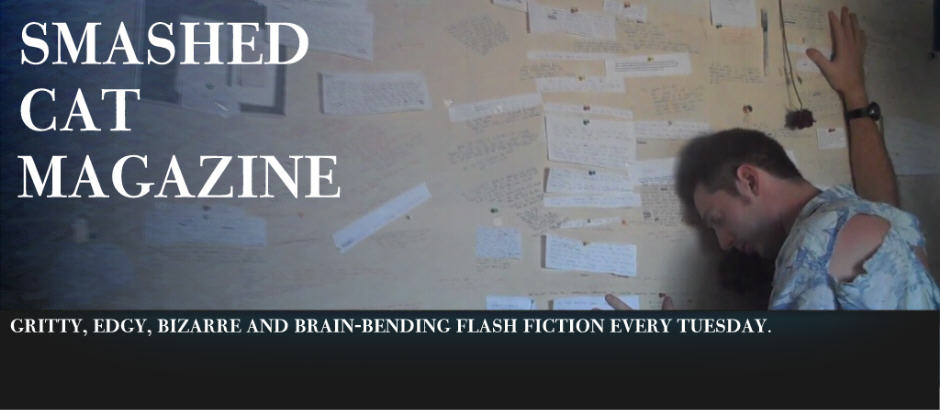12/27/11
Venting
By Anthony Ward
“What are you trying to do?” She inquired of him.
Him who had his arms around his own throat, mimicking the very act he was doing.
“I’m trying to strangle myself!” He replied as if she had wanted him to state the obvious.
“Why are you strangling yourself?” She asked.
“Because I want to.”
“Why? Don’t you realise it’s impossible? You couldn’t even if you wanted to.”
“That’s the trouble isn’t it? I’m incapable of doing anything I want to do.”
“Perhaps because you don’t really want to do it?”
“But I do want to.”
“No you don’t. Besides why would you want to?”
“Because I’m incapable of doing anything else.”
“Well you’re certainly incapable of doing this.”
“Am I?”
“Yes.”
“Why?”
“Because you don’t really want to do it. You have to really want to do something in order to be able to do it effectively. Anything that’s difficult anyway.”
“There’s so many things I’ve wanted to do that I’ve been incapable of.”
“But did you really want to do them?”
“Yes.”
“Then why did you stop?”
He shrugged his shoulders, his hands still fastened around his neck.
“Maybe you didn’t really want to do them in the first place.”
“Then why did I think I wanted to do them. Answer me that?”
“Because you didn’t know what else to do?” She said with upturned palms, shrugging her shoulders, her eyes darting from side to side, as if searching for any objections.
“So you’re suggesting that I’m mimicking the act of strangulation because I actually feel as I’m suffocating?”
“Are you?”
“Feels like it.”
“Especially when you’ve got your hands round your throat.”
“Maybe I’m trying to take control of something I can’t control.”
“But it’s all in vain. You can’t strangle yourself.”
“Maybe I’d be the first.”
“And what good would that be if you were dead?”
“At least I’d be remembered for something.”
“As the man who strangled himself?” She said lifting her shoulders again. “Ok, let’s just imagine that you did manage to strange yourself, what if by proving it could be done, you convinced other people they could do it too?”
“Why would they want to try if I’ve already proved it can be done?”
“Because people generally won’t try to attempt anything they think is impossible, but if you prove to them that it is possible, then it may encourage them to try it as well.”
“I wouldn’t want anyone else to do it.”
“Of course you wouldn’t. They might do it better.”
“Better?”
“I dunno, quicker maybe.”
“You’re saying I’m not doing it fast enough?”
“Well, you’ve taken your time about it; you’ve been talking too much. Someone else would do it quicker, I reckon, if they weren’t talking about it.”
“I wouldn’t be talking about it if you hadn’t come into the room.”
“Let’s just suppose that I hadn’t come into the room, you’d be lying dead and no-one would believe that you strangled yourself, they’d think someone else had done it.”
“Then you’d have to be my witness.”
“Then they’d think I did it.”
He looked down at his feet, knowing once again his endeavours had amounted to nothing.
“This isn’t going to work is it?”
“Perhaps you make things too hard by not taking it easy. Maybe you should relax, breathe a little—just let go.”
And so he let go of his throat and allowed his arms to fall limply by his side.
- - -
Anthony Ward has been writing in his spare time for a number of years. He derives most of his inspiration from listening to mainly Classical Music and Jazz- since it is often the mood which invokes him to set his thoughts to rest. He has been published in a number of literary magazines including South, Word Gumbo, Perspectives, Message in a Bottle, and Blinking Cursor amongst others.


















